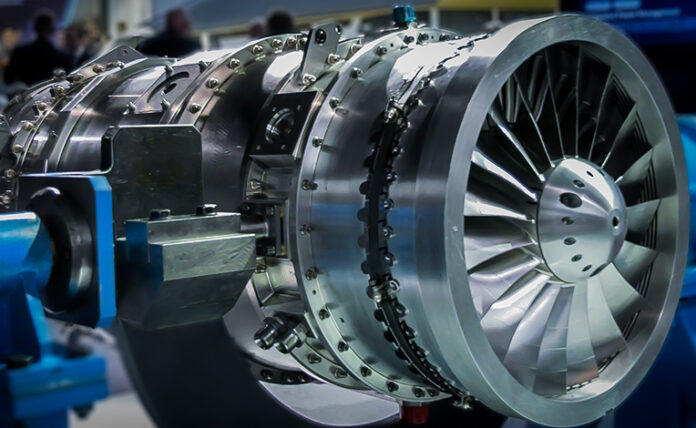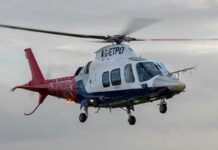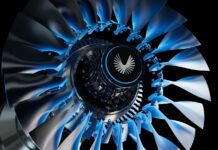Rolls-Royce has been involved in a recycling initiative – known as Tornado 2 Tempest – that has turned old Royal Air Force (RAF) Tornado components into powdered metal, which has then been used to 3D print new parts for the Orpheus small engine concept.
RAF Tornado is a multi-role combat aircraft that has been developed for more than 4 decades to serve military operations across the world. This project aims to demonstrate that the technique has the potential to be used for the next-generation Tempest combat air platform – a cornerstone of Rolls-Royce’s Grow Combat strategic initiative.
The Tornado 2 Tempest project team came together to identify whether some of these components, could be atomized into powders – known as “feedstock” – for additive manufacturing to make new parts.
Tornado components containing high quantities of titanium, including jet engine compressor blades from a low-pressure air compressor, were cleaned and successfully atomised resulting in a 3D printed nose cone and compressor blades being created from recycled parts.
Working as one team, Rolls-Royce installed the 3D printed nose cone onto an Orpheus test engine and ran it at test conditions to demonstrate the part’s suitability and safety for future use, with positive results.
The team also demonstrated a Digital Product Passport by capturing and recording material provenance and lifecycle data. This can potentially enable more informed decisions around material allocation and protect against the use of counterfeit materials.
Thomas Powell, DRDT’s Strategic & Submarine Recycling Senior Commercial Manager said: “Not only can this solution reduce the costs and burden of sourcing critical and high-value metals, but it can also produce components that are lighter, strong and longer lasting than those made through traditional forging techniques, thereby further enhancing the MOD’s overall sustainability and effectiveness.”
Squadron Leader Rob, FCAS’ Sustainability Requirements Manager said: “Innovative technology initiatives such as Tornado 2 Tempest could reduce the RAF’s dependence on lengthy and costly supply chains, allowing us to sustain operations for longer, with the associated benefit of reduced emissions and waste.
“Through the expected lifecycle of the UK’s FCAS, we expect access to critical materials to be challenged, as global supply chains become increasingly disrupted and competitive. In parallel, there is a societal need to make the best use of the raw materials we already have.”
Robert Higham, AMS Director said: “At AMS, our tagline is ‘Innovative Solutions for a Sustainable Future’, and we were confident our innovations and ideas would have a great bearing on the future of a resilient supply. This project turned our proposed solutions into a reality, and we have been humbled and grateful to the MOD and Rolls-Royce for allowing us to showcase our capability to deliver game-changing circular economy processes and parts in Defence.”
Remember, you can post job opportunities in the AM Industry on 3D ADEPT Media free of charge or look for a job via our job board. Make sure to follow us on our social networks and subscribe to our weekly newsletter : Facebook, Twitter, LinkedIn! If you want to be featured in the next issue of our digital magazine or if you hear a story that needs to be heard, make sure to send it to contact@3dadept.com






